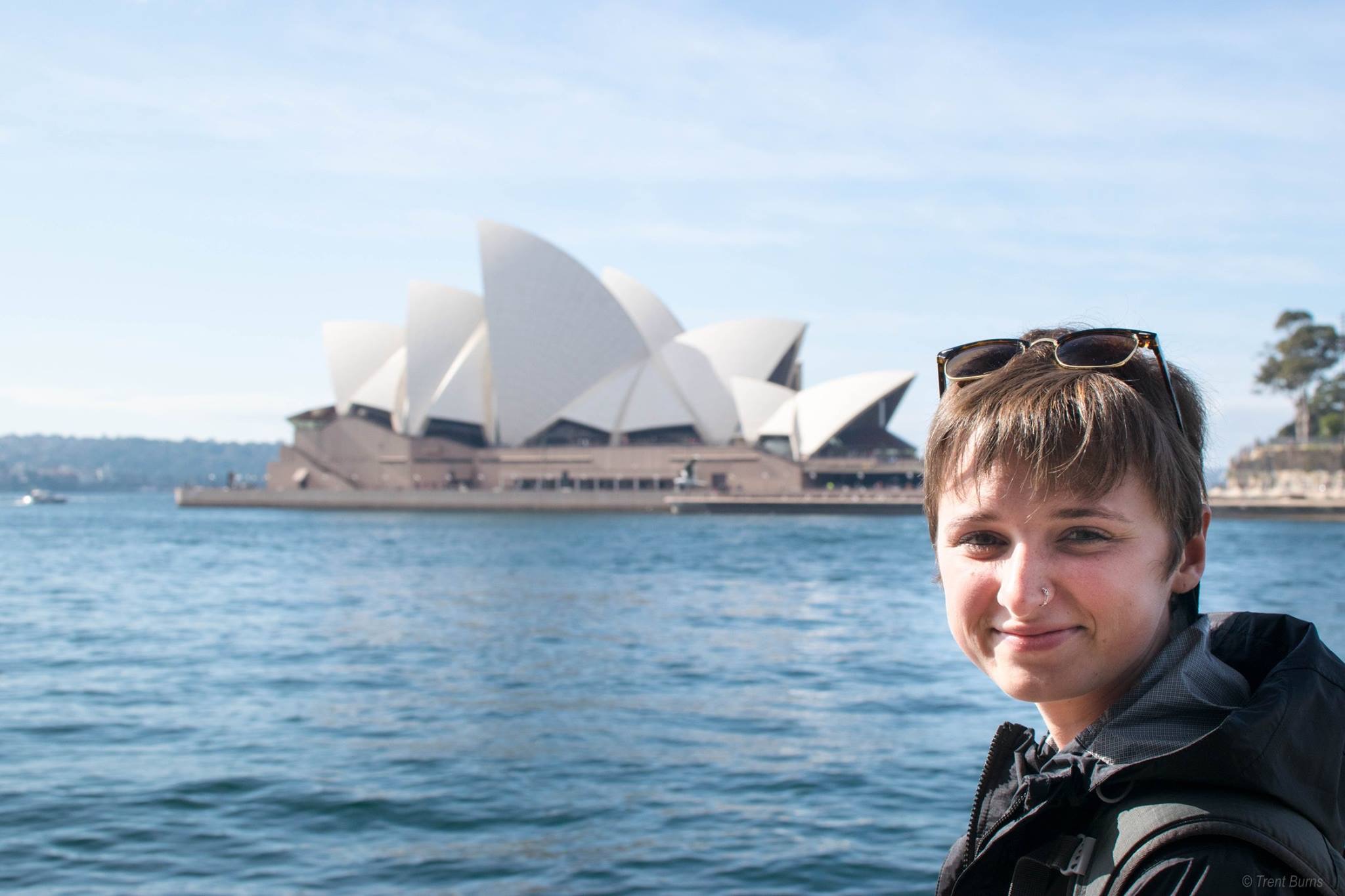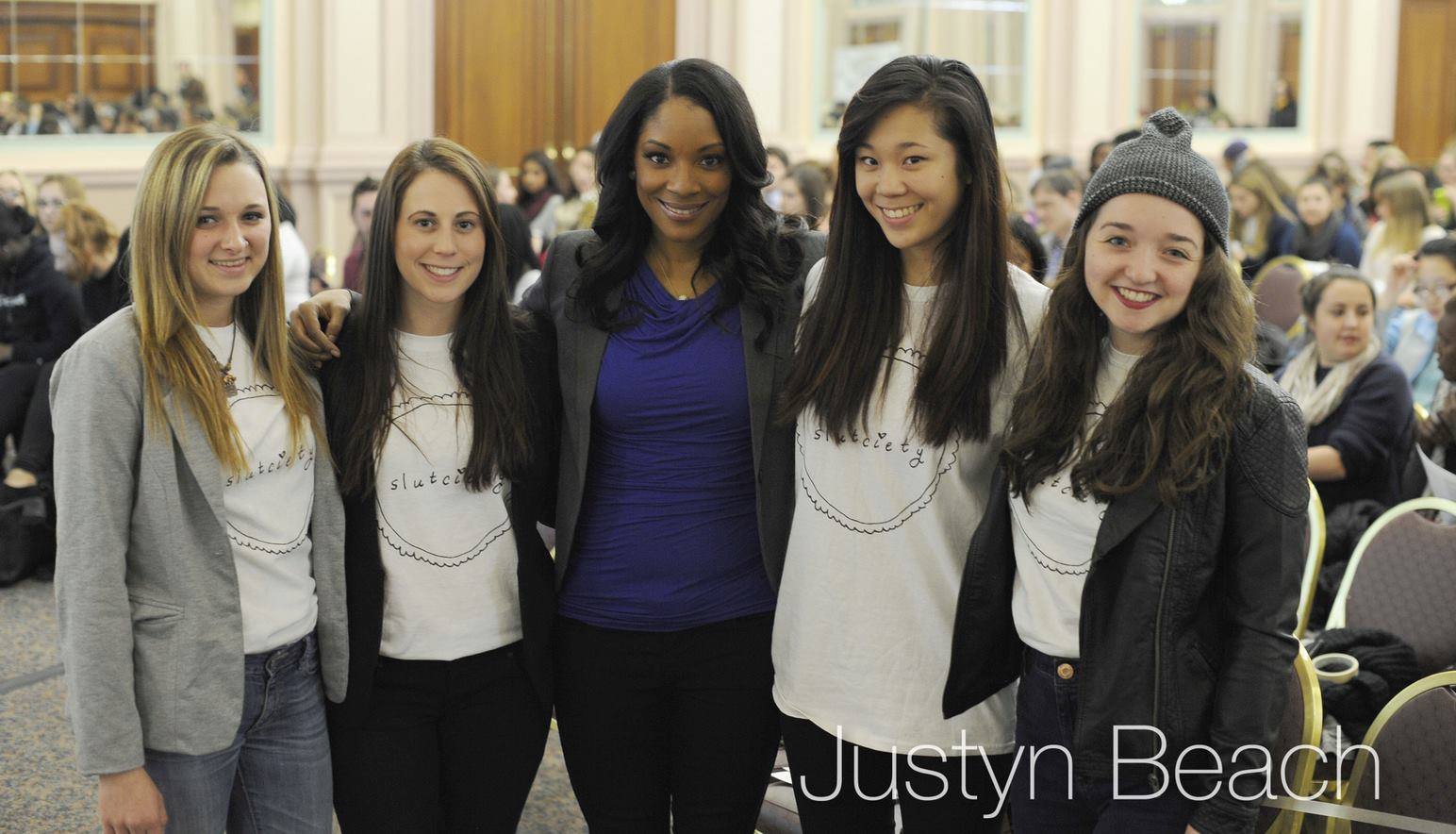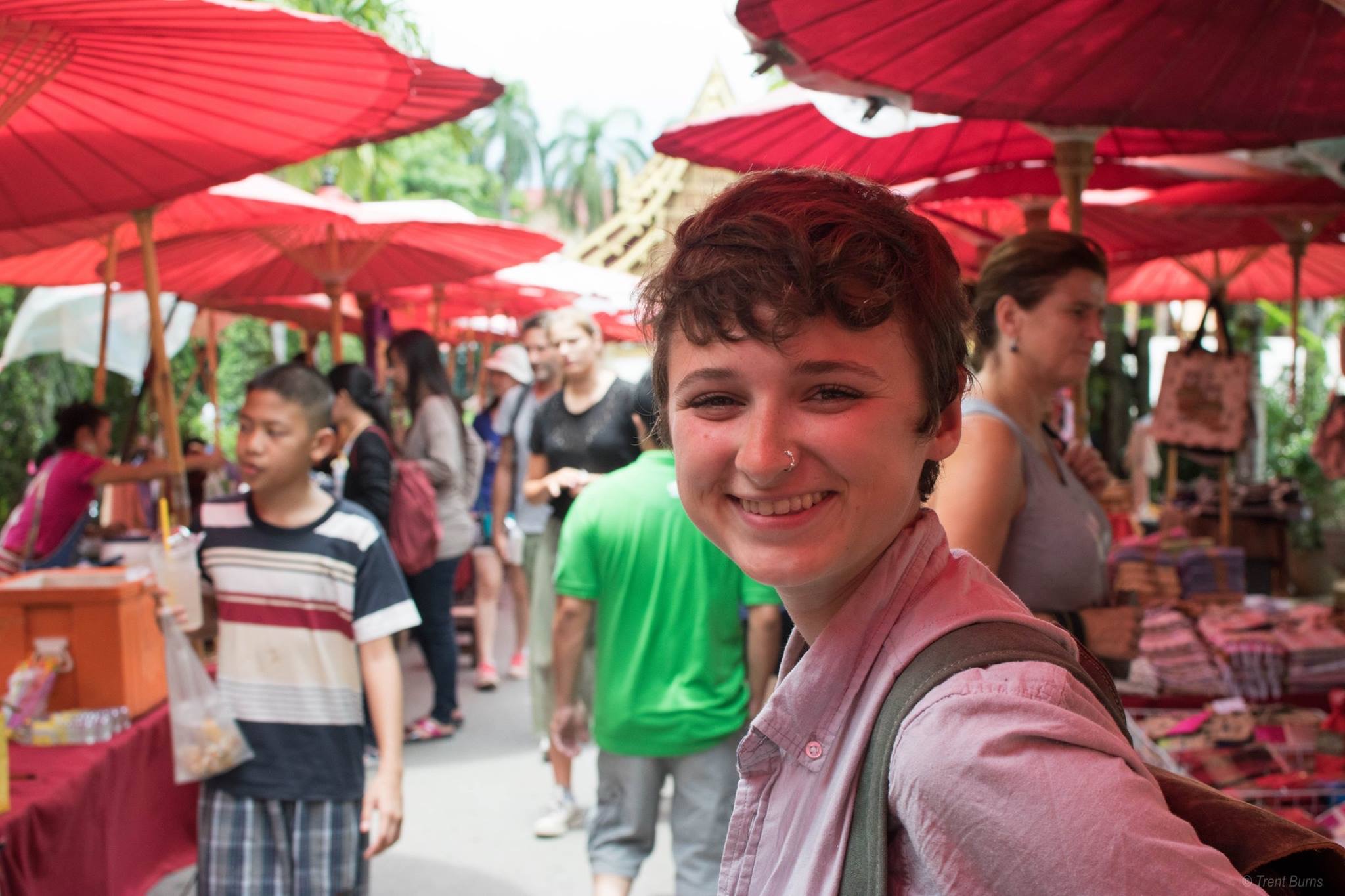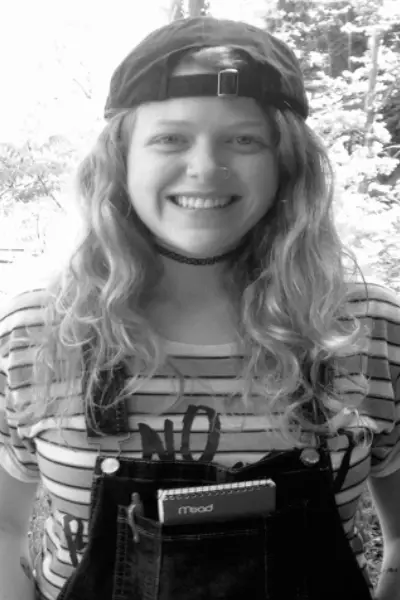Meet Zoë Hannah
Hannah has worked for “The Fourth Wave,” Pitt’s intersectional feminist publication, as well as the “Pitt News,” and will be doing TFA after she graduates.
By Bri Griffith, Carlow University
On the night of November 8, the city of Pittsburgh, Pennsylvania, erupted as the impossible became a real-life nightmare: Donald Trump won the 2016 Presidential Election.
Students from Carlow University and the University of Pittsburgh alike littered Fifth Avenue, holding signs and denouncing the staggering results, their voices loud like firecrackers.
University of Pittsburgh senior Zoë Hannah gained mainstream media’s attention upon organizing the Tuesday night protest alongside a close friend. Hannah is a Nonfiction Writing major with two minors in Film and Literature, and she was stunned to see so many people show up to fight against Donald Trump’s unsafe rhetoric. “400 people came,” says Hannah, “so it was bigger than we thought it would be.”

Hannah marketed the protest through “The Fourth Wave,” Pitt’s intersectional feminist publication. When Zoë Hannah was a first year student, “The Fourth Wave” was a club known as “Slutciety,” created by Pitt graduate Amanda Chan in the spring of 2014; Hannah started out as an occasional writer. “Slutciety” became a club toward the end of the semester; they had time to print one issue, and did so using their own printing quotas because they didn’t have any money.
In the fall of 2014, Hannah became the Co-Vice President alongside Maddie O’Connell, and she took over as Editor-in-Chief (EIC) of “The Fourth Wave” upon Chan’s graduation a year-and-a-half ago. Just before becoming EIC, Chan suggested changing the name of their publication, and Hannah came up with “The Fourth Wave.” According to Hannah, they rebranded because “the word ‘slut’ means something very different to black women than it does to white women,” and they were looking to be more intersectional.
In addition to her work with “The Fourth Wave,” Hannah started as a Staff Writer for the “Pitt News” in the fall of 2015; she became the Assistant News Editor in the spring before stepping down to become the Head of Staff Development. “I run workshops once a month, and teach people what AP style is, how not to be biased, how to interview and reporting basics,” says Hannah.
The protest on Tuesday, November 8 was picked up by the “Pitt News” as well as the “Pittsburgh Post Gazette.” CNN contacted the “Pitt News,” whose Editor-in-Chief knows Hannah personally, in search of a contact. CNN called Hannah, and asked for an interview.
“They asked a few preliminary questions, and then I went to a studio in downtown Pittsburgh next to KDKA; they filmed me there,” she says. The interview aired on CNN the morning of November 10. During the 5-minute interview, Hannah talked about the many protests in Pittsburgh, and paralyzing fear.
“Trump supporters are emboldened right now,” said Hannah, “and there are literally people calling themselves Nazis.”
When you go up against hate, hate fights back (and sometimes viciously), especially online. “I had my phone out seconds after I finished the segment on CNN,” says Hannah. “I had 13 friend requests on Facebook and 20 messages—people did take the time to find my personal Facebook, message me and call me a cunt.” Worst of all, Hannah says, “Most of them were insulting my intelligence, and telling me I was wasting my 15 minutes of fame. Somebody even called me a terrorist.”
In reference to social media and activism, Zoë Hannah thinks Twitter can be a powerful tool for people who are already activists; however, she says, “People read one-liners and think they understand feminist theory, or political theory; it’s had this negative effect of turning people into activists without giving them the opportunity to conduct actual research.”
After the CNN interview aired, Megyn Kelly, American journalist and political commentator, sent Zoë Hannah an email asking if she’d be a guest on her show. “I decided not to do it because I had my Teach For America interview that night,” says Hannah.
For a woman who didn’t know what feminism was before starting her college career, Zoë Hannah’s intersectional approach to life has allowed her to better understand where people are coming from. She includes a Kimberlé Crenshaw quote on the back of each print issue of “The Fourth Wave.” Crenshaw coined the term “intersectionality” in 1989.
Hannah described intersectionality as “striving to get points of view from people of all sorts of racial/socioeconomic backgrounds, and even people from different countries.” Hannah also says of intersectionality, “When you think of your ideal classroom, what do you see? What’s going to get the most productive conversation going?”
Hannah provided a powerful example of intersectionality at work: Muslim women shouldn’t wear the hijab because it’s oppressive? Hannah says, “An intersectional view would flip that and think, well, a woman doing what they want is inherently feminist. You’re inherently not being oppressed if you’re doing what you want.”
Zoë Hannah knows she’s a person of privilege. “I bring up privilege so much,” she says, “because, if I were a trans person for example, it may be unsafe for me to talk about politics with people who don’t agree with me, depending on the situation.”

Still, Hannah stands by the following advice: “If you’re going to be safe talking to people who disagree with you, then I think you should do that.”
Zoë Hannah’s career goals center around activism as well. “I want to be a high school English teacher. My activism lies in helping people learn truth. Skills you learn in a literature class can be used in any situation—that kind of critical thinking is so important to activism, and learning how to communicate,” says Hannah.
Hannah’s intersectional activism helped her land a job with Teach For America, meaning she will be teaching secondary English to low-income students in Baltimore, Maryland. She says, “I talked about activism in my interview; I acknowledged I have no basis of what life is like living in a low-income community.”
Hannah was nervous during her interview. “I thought I wouldn’t be able to honestly and accurately help people, or understand their experiences,” she says. As a white person, Hannah doesn’t want to tell her students how to better deal with issues she knows nothing about. Says Hannah, “Learning how to be a better activist is learning how to accept your privilege, but use it.”
For other students looking to become more culturally competent and aware, Hannah says, “It’s super important to read legacy newspapers. I’m totally going to push that; I think people need to pay so they can get accurate news, instead of relying on these fake news sites that basically won Donald Trump the election.”
“Don’t shut up,” says Hannah. “We just saw with the Dakota Access Pipeline—direct address works. People will listen to you because if you don’t shut up, they can’t stop listening to you. I also think it’s super important to continue to challenge your own views. You need to be able to know what the oppressor is thinking.”
You can follow Zoë Hannah on Twitter: @ZoeHHannah
You can keep up with “The Fourth Wave,” and the “Pitt News” on Twitter as well:









